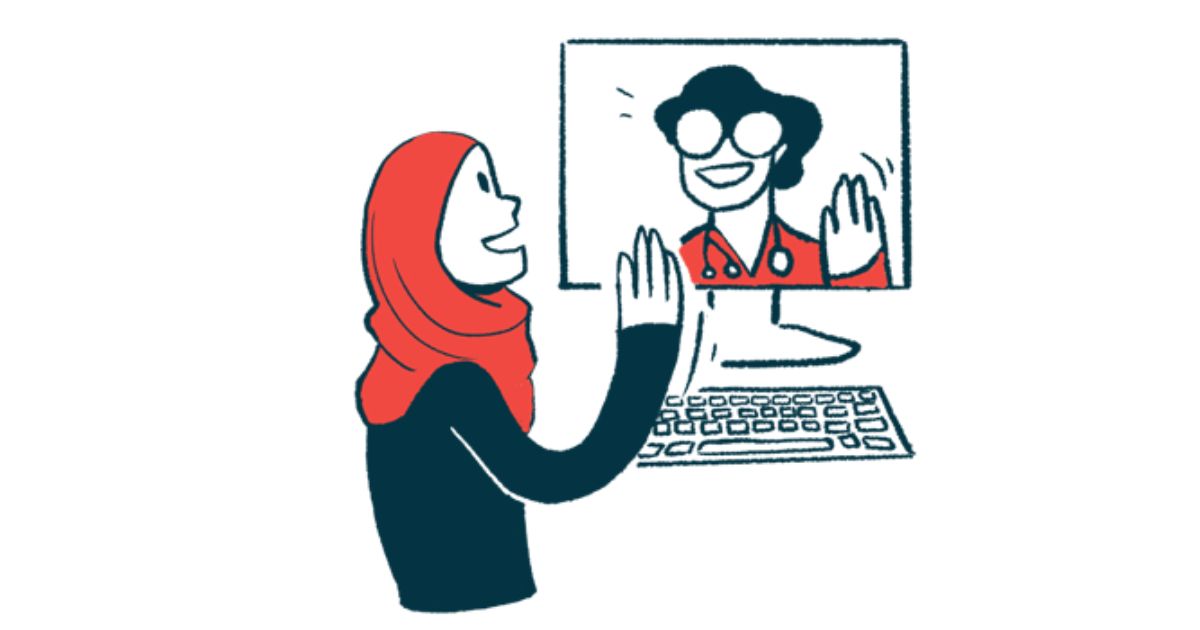In a groundbreaking development, a Phase 3 clinical trial has revealed that a remote cognitive behavioral therapy (CBT) program, delivered through self-paced online modules, has demonstrated significant potential in alleviating depressive symptoms and enhancing the overall quality of life for individuals living with multiple sclerosis (MS). The study’s findings offer hope for overcoming depression in Multiple Sclerosis patients
Depression is a pervasive challenge within the MS community, affecting up to half of all patients at some point during their illness journey.
This psychological burden can be attributed to a complex interplay of neurological changes and psychosocial factors stemming from the experience of living with MS.
To address this issue, researchers designed a Phase 3 trial to explore whether an internet-based platform could facilitate access to cognitive behavioral therapy for individuals with MS and depression. The results were nothing short of remarkable, revealing a significant reduction in depressive symptoms among participating patients.
Dr. Peter Arnett, a co-principal investigator of the study and a professor at Pennsylvania State University, elaborated on the essence of cognitive behavioral therapy. He explained that CBT focuses on altering thought patterns, making them more positive and productive.
“At the very core of cognitive behavioral therapy is the notion that thoughts cause feelings,” Dr. Arnett emphasized. “An important goal of CBT is to help the individual challenge and change those thoughts so they’re more realistic, adaptive, and positive.”
Despite the potential benefits of CBT, MS patients often encounter hurdles when seeking therapy. For one, locating a therapist with expertise in treating neurological diseases can be a daunting task.
Additionally, the symptoms of MS can hinder patients from physically accessing therapy, making it imperative to explore innovative alternatives.
The remote CBT program represents a significant step towards addressing these challenges. By offering therapy through self-paced online modules, it provides patients with greater flexibility and convenience.
This not only increases therapeutic options for MS patients but also holds the promise of mitigating the adverse effects of depression on their treatment adherence.
Depression in MS patients is not just a psychological burden; it has tangible consequences for disease management. Those suffering from both conditions are more likely to experience cognitive impairment and exhibit reduced compliance with medication regimens. Consequently, this can lead to heightened disease activity and a faster progression of MS.
CBT Program To Treat Depression in Multiple Sclerosis Patients
The trial’s results suggest that the remote CBT program has the potential to tackle these intertwined issues effectively. The program’s accessibility could empower MS patients to combat depressive symptoms, leading to improved overall well-being and enhanced adherence to prescribed treatments.
The study’s methodology involved the participation of individuals with MS and diagnosed depression who were randomized into two groups.
One group received the remote CBT program, while the other received standard care. The researchers measured depressive symptoms and assessed the quality of life of participants at various intervals throughout the trial.
The outcomes were striking. Patients engaged in the remote CBT program demonstrated a significant reduction in depressive symptoms compared to those receiving standard care. This marked improvement in mental health was met with enthusiasm from both patients and researchers alike.
The significance of these findings lies not only in their potential to alleviate the emotional burden of MS patients but also in their broader implications for healthcare accessibility.
Remote therapies have gained momentum in recent years, and this study underscores their effectiveness in delivering essential mental health support to those who need it most.
The research team emphasized that this remote-access, scalable intervention could be transformative for MS patients, offering a ray of hope for improved mental health outcomes.
As MS continues to impact the lives of millions worldwide, innovations like this hold the promise of breaking down barriers and providing much-needed support for those battling both physical and emotional challenges.
In summary, the Phase 3 trial investigating the effectiveness of a remote CBT program in alleviating depression among MS patients has yielded promising results. This innovative approach not only improves mental health outcomes but also addresses the accessibility issues faced by individuals with MS seeking therapy.
With the potential to enhance treatment adherence and overall quality of life, this remote therapy program represents a significant breakthrough in MS care. As the healthcare landscape continues to evolve, such interventions offer hope for a brighter future for those living with MS and depression.





















